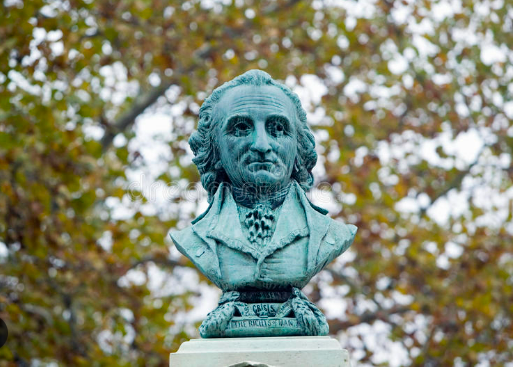 In honor of 2023’s National School Choice Week, the Cato Institute published one of the first comprehensive timelines of school choice. Because opponents still seek to delegitimize school choice by accusing the movement of having nefarious origins, it's more important now than ever to establish its true history, one that extends back to the country's founding.
In honor of 2023’s National School Choice Week, the Cato Institute published one of the first comprehensive timelines of school choice. Because opponents still seek to delegitimize school choice by accusing the movement of having nefarious origins, it's more important now than ever to establish its true history, one that extends back to the country's founding.
But beyond the timeline’s stated purpose, to show that “empowering families to choose has a long history, both as an idea and in practice,” it also inadvertently makes a vital contribution to the history of political and educational thought by including Thomas Paine as a key figure in the early development of school choice.
Indeed, it is one of few sources I’ve seen (beyond my own work) to recognize that the first proposal for what we would now call an education choice scholarship program was made in 1791 by the Anglo-American rabble rouser.
Paine is a controversial figure; his prickly personality and attacks on organized religion earned him censure in the United States for hundreds of years. As a result, even the most historically-inclined school choice advocates have ignored Paine’s contributions, with Milton Friedman or occasionally John Stuart Mill getting all the credit.
They certainly deserve some recognition, but in the wake of School Choice Week, let’s join the Cato Institute in giving ol’ Tom Paine’s intellectual contributions the respect they deserve. Moreover, by considering his stance on education, school choice supporters can address some of the movement’s most glaring shortcomings.
Paine’s justification for his school choice proposal was not terribly dissimilar from the arguments school choice advocates make now. More specifically, Paine was concerned with education’s usefulness as well as how efficiently schooling could be provided. He wrote that “education, to be useful to the poor, should be on the spot, and the best method, I believe, to accomplish this is to enable the parents to pay the expenses themselves.”
Seems familiar, doesn’t it? Whether we know it or not, when school choice advocates argue that microschools can provide a valuable homeschooling-adjacent option for a local community of families, or that education savings accounts allow parents to cultivate an educational paradigm that is tailored to their children’s needs, we are echoing Thomas Paine.
Will this knowledge alter legislative battles or create new policies? Probably not. But anyone who advocates for a cause should understand that cause’s historical development, and that knowledge can allow us to dispel common nonsensical critiques.
One of the most common aspersions cast on school choice advocates is that we have it out for teachers. Of course, such criticisms are unfounded. Fortunately for us, Tom Paine was worried about teachers, too.
He observed that a wide variety of community members are capable of being educators, and that his ideal stipend to families would not only provide poor children with the education needed to prosper but would provide those teaching them with income and economic flexibility in their own right. Paine declared that “to them [children] it is education — to those who educate them it is a livelihood.”
Some contemporary school choice advocates, like Daniel Buck, formerly of Chalkboard Review, have made the argument that expanding education choice would actually benefit teachers. This line of reasoning remains criminally underutilized. Teachers all over America feel stuck and powerless in their current jobs, but despite widespread (but generally false) claims of a nationwide teacher shortage, most educators have many options but few real choices.
Turning back to Tom Paine really could make a dramatic difference, as education choice would offer teachers numerous additional learning models in which they may feel more fulfilled.
School choice advocates have done well to explain the real reasons why millions of parents around the country are pushing for more options for their children. But one chapter in school choice’s history must still be written.
By turning back to Tom Paine, school choice advocates can not only expand their potential audience, but also correct any historical misunderstandings before they reach the public square.